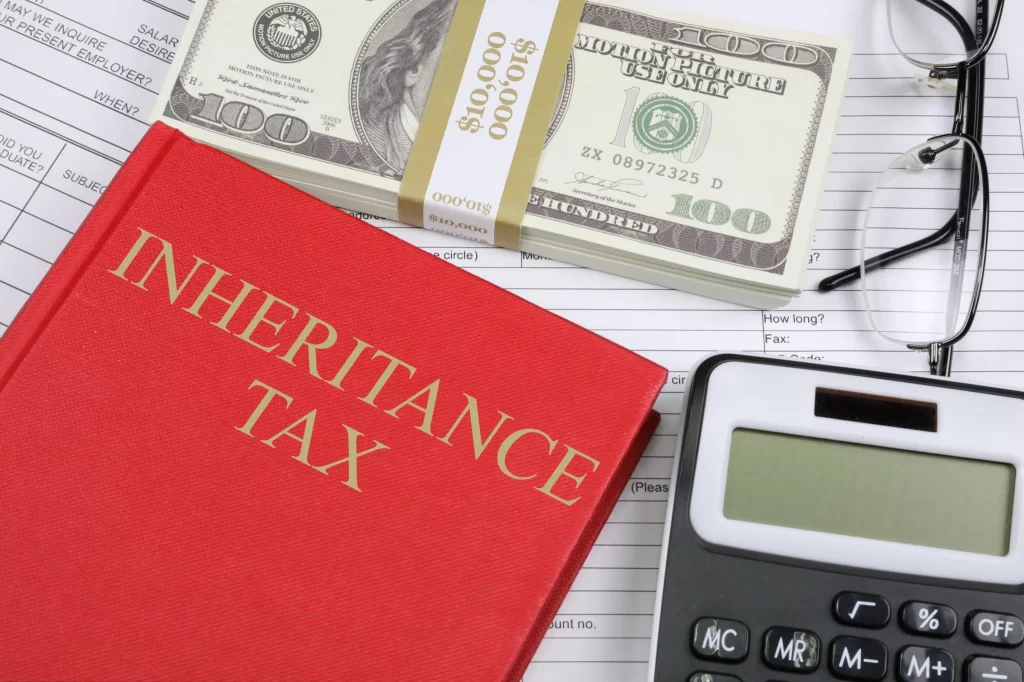In the intricate world of estate planning, a common concern among individuals is how to avoid inheritance tax on their parent’s house. Understanding the complexities of tax laws and navigating the nuances of inheritance planning can be daunting. At Morgan Legal Group in New York City, our team of experienced attorneys specializes in estate planning, probate, elder law, Wills, and trusts. In this article, we will provide you with valuable insights and expert advice on strategies to help you mitigate inheritance tax on your parent’s house effectively. Let us guide you through this intricate process and help you secure your loved one’s legacy.
Strategies for Minimizing Inheritance Tax Liability on Your Parent’s Home
One effective strategy for minimizing inheritance tax liability on your parent’s home is by gifting the property to your children while you are still alive. By making a gift of the home, you can take advantage of the annual gift tax exclusion, which allows you to gift up to a certain amount each year without incurring gift tax. This can help reduce the overall value of your estate, ultimately lowering the inheritance tax liability for your heirs.
Another strategy to consider is setting up a qualified personal residence trust (QPRT) for your parent’s home. With a QPRT, you transfer the ownership of the home to the trust and retain the right to live in the property for a specified period of time. At the end of the trust term, the home passes to your heirs at a reduced value, potentially reducing the inheritance tax liability. It is important to speak with an experienced estate planning attorney, like our team at Morgan Legal Group, to determine the best strategy for your specific situation.
| Strategy | Benefits |
|---|---|
| Gift the property to children | Utilize annual gift tax exclusion |
| Set up a QPRT | Reduce home’s value for inheritance tax |

Understanding the Impact of the Step-Up in Basis Rule on Inherited Property
When it comes to inheriting property from a deceased parent, one of the key considerations to keep in mind is the impact of the Step-Up in Basis Rule. This rule can have significant implications for the value of inherited property and the potential tax consequences that may arise. Understanding how the Step-Up in Basis Rule works is essential for anyone looking to avoid inheritance tax on their parent’s house.
Under the Step-Up in Basis Rule, the value of inherited property is adjusted to its current market value at the time of the parent’s death. This means that any appreciation in the value of the property during the parent’s lifetime is effectively erased for tax purposes. By taking advantage of this rule, beneficiaries can potentially reduce the capital gains tax they would owe if they were to sell the inherited property. Proper estate planning and the use of trusts can help ensure that the Step-Up in Basis Rule is applied correctly, ultimately minimizing tax liability and maximizing the value of the inheritance.

Utilizing Trusts and Estate Planning Tools to Preserve Family Wealth
When it comes to preserving family wealth, utilizing trusts and estate planning tools is essential. One common concern for many individuals is how to avoid inheritance tax on their parent’s house. By strategically structuring your estate plan, you can minimize tax liabilities and ensure that your loved ones receive the maximum benefit from your assets.
One effective way to protect your family’s wealth is by setting up a trust. Trusts offer a variety of benefits, including asset protection, avoiding probate, and minimizing tax obligations. By placing your parent’s house in a trust, you can control how the property is managed and distributed to beneficiaries. Additionally, estate planning tools such as gifting strategies and life insurance can further help reduce the impact of inheritance tax on your loved ones.

Consulting with an Experienced Estate Planning Attorney for Tailored Guidance and Solutions
When it comes to avoiding inheritance tax on your parent’s house, consulting with an experienced estate planning attorney is crucial. At Morgan Legal Group, we understand the complexities of estate planning and can provide tailored guidance and solutions to help you minimize tax liabilities and protect your assets.
During a consultation with one of our attorneys, we will carefully review your parent’s estate and financial situation to determine the best course of action. Our team will work with you to create a comprehensive estate plan that meets your specific needs and goals. Whether it involves setting up a trust, gifting strategies, or other tax planning techniques, we will ensure that your parent’s house is passed on to your heirs with minimal tax consequences. Trust us to navigate the intricate legal landscape of inheritance tax and provide you with peace of mind.
Q&A
Q: I just inherited my parent’s house and I’m worried about potentially having to pay inheritance tax. How can I avoid this tax burden?
A: Inheritance tax can be a significant concern for those who inherit property, but there are several strategies you can use to minimize or even avoid this tax burden.
Q: What are some common methods to avoid inheritance tax on a parent’s house?
A: One common strategy is to gift the property to family members before passing away. This can help reduce the value of the estate and therefore the amount of tax owed. Another option is to set up a trust, which allows for more control over the distribution of assets and can help minimize tax liabilities.
Q: Are there any specific exemptions or deductions that can be used to avoid inheritance tax on a parent’s house?
A: Yes, there are several exemptions and deductions available that can help reduce or eliminate inheritance tax. For example, certain states may offer a homestead exemption for primary residences, which can reduce the taxable value of the property. Additionally, there is a federal estate tax exemption that allows for a certain amount of assets to be passed on tax-free.
Q: Are there any other strategies or tips that can help in avoiding inheritance tax on a parent’s house?
A: Consulting with a tax advisor or estate planning attorney is always recommended when dealing with inheritance tax issues. They can provide personalized advice and help you navigate the complex tax laws surrounding inherited property. Additionally, keeping detailed records of the property’s value and any associated expenses can help support your case for minimizing tax liability.
To Conclude
In conclusion, navigating the complexities of inheritance tax can be daunting, especially when it comes to dealing with the family home. By exploring various strategies such as lifetime gifting, creating a trust, or taking advantage of exemptions and reliefs, you can potentially minimize the tax burden on your parent’s house. Remember to consult with a financial advisor or tax specialist to ensure you are making the best decisions for your unique situation. With careful planning and foresight, you can protect your inheritance and preserve your family’s legacy for generations to come.




